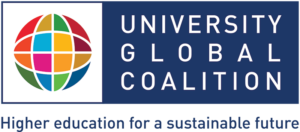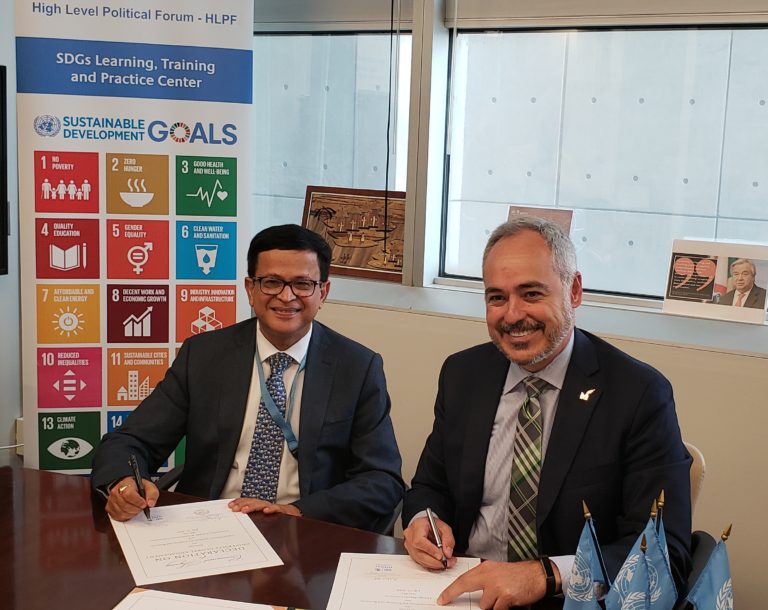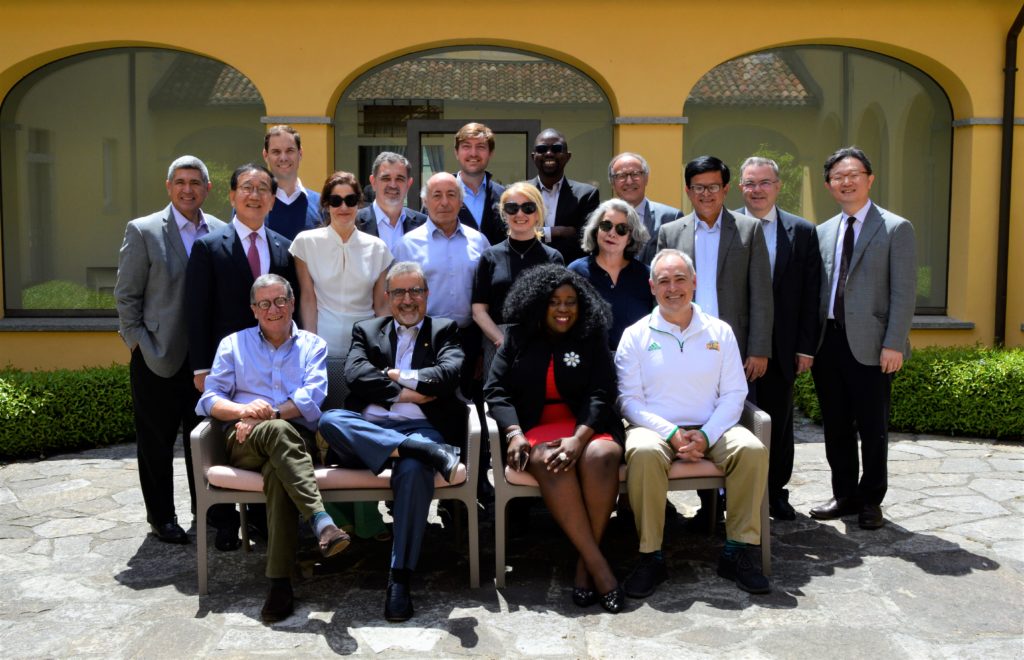
Inspired by the Declaration on University Global Engagement, which has been endorsed by more than 100 universities and higher education associations from around the world, and with the support of the Rockefeller Foundation, a group of fifteen university presidents and higher education leaders from Europe, Asia, Africa, North and South America met in the Bellagio Center in Italy between May 20 and 24 of 2019 with representatives from the United Nations (UN Institute for Training and Research UNITAR) and the Sustainable Development Solutions Network (SDSN), to discuss the viability and advisability of establishing a University Global Coalition.
The idea behind the University Global Coalition is to form a global platform of universities and other higher education organizations committed to working together and in partnership with the United Nations (through UNITAR), SDSN, and other relevant organizations, in support of the Sustainable Development Goals both locally and globally through our education, research, and service missions.
The consensus of the participants in the Bellagio Conference was that universities not only have an opportunity, but an obligation, to do whatever is in their power to educate and inspire students to play an active role in addressing the most pressing issues confronting our world today, produce new ideas that can lead to new solutions, and collaborate with other organizations to create awareness, support and even lead local and global efforts.
The 17 Sustainable Development Goals, adopted unanimously by world leaders in September 2015, constitute the most ambitious global agreement ever reached as to what the world’s most pressing issues are and what specific, shared targets should be achieved by 2030. These goals, from eliminating poverty to creating economic opportunity and social inclusion, to achieving peace and environmental sustainability, call out the existential risks we face as a species and a planet. The goals are both local and global. They affect the north and the south alike, the rich and the poor. They highlight our shared destiny and interdependency, and they cut across political, national, and cultural boundaries.
Because issues underpinning the Sustainable Development Goals are so complex, lasting solutions will only be achieved through multidisciplinary, cross-sectorial, collaborative approaches, which require new ways of thinking, new talent, and new ideas. Indeed, Goal 17 specifically calls for multistakeholder partnerships at the local, national, and international levels.
Universities have long worked across borders, helping expose students to different cultural, social, and economic realities and conducting research in distant locations. The Sustainable Development Goals make it clear that global engagement in higher education is not just desirable but necessary. The world needs new knowledge, new ideas, and new approaches to solving complex problems. The world needs people with new capabilities, global outlook, and leadership skills who can find and implement new solutions. Because of their unique missions and resources, universities are essential to deliver the new ideas and talent. And because of their trusted place in society, universities are ideally positioned to create social awareness and to call on other stakeholders to collaborate and take action.
Some universities have already adopted the Sustainable Development Goals as an overarching framework for their global and local engagement activities or have even embedded them into their strategic plans. Yet the efforts remain mostly isolated and far from widespread, and the voice of universities as critical institutions in shaping and implementing the global development agenda has been notoriously absent from critical discussions, summits, and conferences.
The University Global Coalition will be a call to action to universities around the world to engage, to lead, and to collaborate. It will be a movement, a platform for collective action, and a mechanism to amplify the voice of higher education and bring it to the table in the most relevant global efforts.
The participants in the Bellagio conference are committed to making the University Global Coalition a reality and call on leaders of universities around the world to join the effort.
Ángel Cabrera, President, Georgia Institute of Technology, and Nikhil Seth, United Nations Assistant Secretary-General, Executive Director, UNITAR, jointly sign the Declaration on University Global Engagement
University Global Coalition Steering Committee Members
Committee Chair: Ángel Cabrera, President, Georgia Institute of Technology
Committee Members:
Guillermo Cisneros Perez, Rector, Universidad Politécnica de Madrid
Arturo Condo, President, EARTH University
Sally Crimmins Villela, Associate Vice Chancellor for Global Affairs, SUNY System Administration
Waded Cruzado, President, Montana State University
Gbemi Disu, Vice President for Global Network Expansion, Northeastern University
Kim Eunkyoung, Provost, Yonsei University
Deep Saini, Principal, McGill University
David Garza, President, Tecnológico de Monterrey
Vivek Goel, President, University of Waterloo
Joanna Regulska, Vice Provost and Associate Chancellor, UC Davis
Nikhil Seth, Executive Director, UNITAR
University Global Coalition Secretariat
Drew Cutright, Georgia Institute of Technology (United States)

Drew Cutright (she/her) is a Managing Strategy Consultant in Georgia Institute of Technology’s office of Strategic Consulting, with a focus on international initiatives and sustainability. She is also the program administrator for the University Global Coalition, a global network of higher education institutions working to advance the UN Sustainable Development Goals. Prior to joining Georgia Tech, Drew held roles as a sustainable building consultant, environmental planner, and environmental educator. Drew has a Master in Environmental Planning and Design and a Bachelor of Arts in English Language and Literature. Drew is a certified Project Management Professional and LEED AP BD+C.
Paola Visconti, Tecnológico de Monterrey (Mexico)
 Paola Visconti is Leader of Strategic Engagement at Tecnológico de Monterrey. Under the leadership of the Sustainable Development and Engagement Director, her objective is to exert Tec de Monterrey´s responsibility in constructing a more just and sustainable world by connecting internal and external actors akin to social transformation, by fostering, articulating, and giving visibility to select institutional initiatives related to the SDGs and offer society at large Tec’s capacities and capabilities, academic, scientific, and institutional.
Paola Visconti is Leader of Strategic Engagement at Tecnológico de Monterrey. Under the leadership of the Sustainable Development and Engagement Director, her objective is to exert Tec de Monterrey´s responsibility in constructing a more just and sustainable world by connecting internal and external actors akin to social transformation, by fostering, articulating, and giving visibility to select institutional initiatives related to the SDGs and offer society at large Tec’s capacities and capabilities, academic, scientific, and institutional.
Cynthia María Villarreal Muraira, Tecnológico de Monterrey (Mexico)
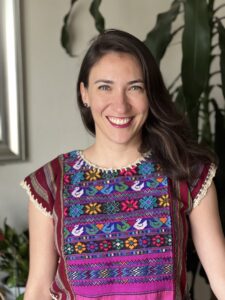
University Global Coalition Partner Institutions

United Nations Institute for Training & Research
An autonomous UN body established in 1963, the United Nations Institute for Training and Research (www.unitar.org) is a training arm of the United Nations System, and has the mandate to enhance the effectiveness of the UN through diplomatic training, and to increase the impact of national actions through public awareness-raising, education and training of public policy officials. UNITAR provides training and capacity development activities to assist mainly developing countries with special attention to Least Developed Countries (LDCs), Small Island Developing States (SIDS) and other groups and communities who are most vulnerable, including those in conflict situations.
Contact: Jonas Haertle, Special Assistant to the Executive Director, UNITAR
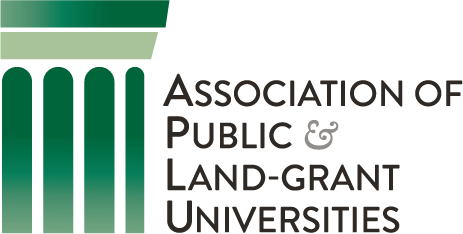
Association of Public & Land-grant Universities
APLU (www.aplu.org) is a research, policy, and advocacy organization dedicated to strengthening and advancing the work of public universities in the U.S., Canada, and Mexico. With a membership of 237 public research universities, land-grant institutions, state university systems, and affiliated organizations, APLU’s agenda is built on the three pillars of increasing degree completion and academic success, advancing scientific research, and expanding engagement. Annually, member campuses enroll 4.8 million undergraduates and 1.3 million graduate students, award 1.3 million degrees, employ 1.3 million faculty and staff, and conduct $44.9 billion in university-based research.
Contact: David Edelson, Director of Public Affairs, APLU

Georgia Institute of Technology (Georgia Tech) President Ángel Cabrera is the current chair of the steering committee of the University Global Coalition. Georgia Tech staff members Lynn Durham, Director of External Relations, and Drew Cutright, Program Manager, actively support the Coalition’s administration. Georgia Tech’s Director of Serve-Learn-Sustain, Jenny Hirsch, co-leads RCE Greater Atlanta, officially acknowledged by the United Nations University.
Contact: Drew Cutright, Managing Strategy Consultant, Georgia Tech
